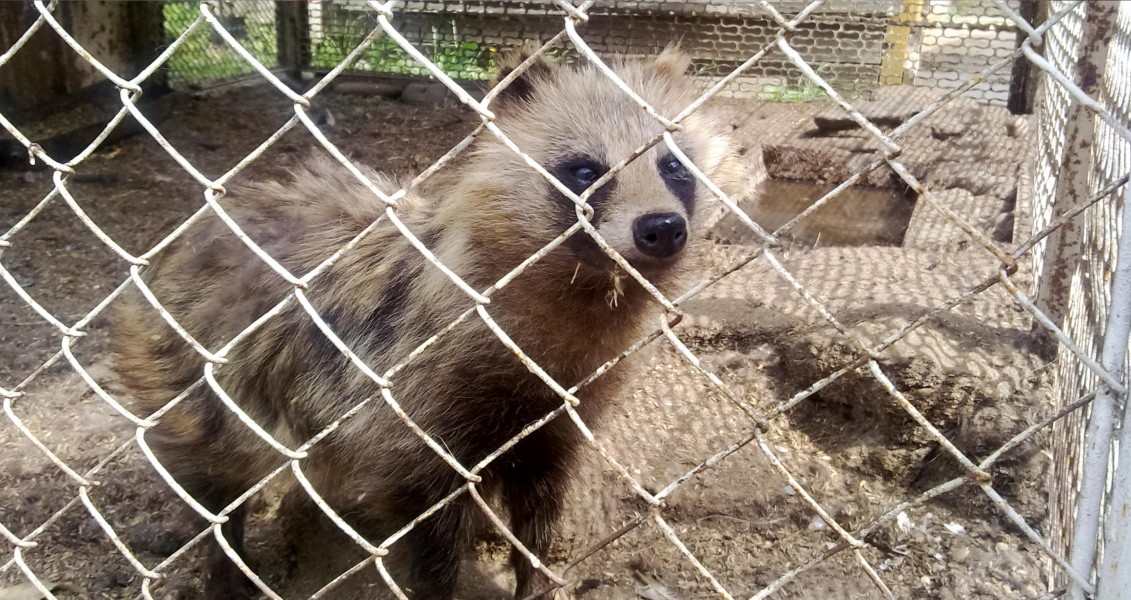 x
x
The quest to unravel the enigmatic origins of SARS-CoV-2—the insidious virus that precipitated the global pandemic—has led the scientific community down a path less trodden, unexpectedly alighting on an unforeseen contender: the raccoon dog. Research endeavours conducted in the early months of 2023 hint at the intriguing possibility that these East Asian creatures might serve as an intermediate host for the virus before its fateful leap into human populations.
Evidence accumulated in this line of inquiry reveals a curious phenomenon. Raccoon dogs, frequently bred for their fur within the borders of China, exhibit an unsettling capability to harbor SARS-CoV-2 whilst presenting no discernible symptoms. This silent vector status could feasibly facilitate their role as unseen propagators of the virus, thereby bridging the biological chasm to humanity. In addition, genomic analyses hint that a strain of the virus bearing remarkable similarity to SARS-CoV-2 may have circulated within raccoon dog populations before infiltrating the human domain.
This compelling development dovetails neatly with the persisting hypothesis that posits the genesis of SARS-CoV-2 within the wildlife ecosystem. While the controversial theory suggesting a laboratory leak remains a viable contender, it is the wildlife proposition that continues to garner increasing empirical fortitude. Bats, renowned for their propensity to harbour a host of coronaviruses, some bearing close kinship to SARS-CoV-2, are frequently spotlighted as the potential progenitors of the virus.
However, a consensus among scientists suggests that bats alone may not bridge the epidemiological gap. An intermediate host, a biological stepping-stone between bats and humans, may well exist, and raccoon dogs appear to fulfil this biological prerequisite. Previous probes into the potential intermediary role of pangolins yielded insufficient evidence, rendering the revelation regarding raccoon dogs a notable lead.
Yet, pinpointing a likely intermediary host is but a waypoint in this investigative journey. The onus is upon the scientific community to undertake exhaustive research to solidify this potential link. Thus far, no raccoon dog farm has reported a SARS-like disease outbreak predating the human pandemic, and direct evidence of a human contracting the virus from these creatures remains elusive. More research is still required to determine the origin of SARS-CoV-2.
Virologists emphasise the imperative of pursuing all plausible leads in the quest to elucidate the origins of SARS-CoV-2, while some express concerns that an undue focus on identifying an intermediate host might eclipse exploration of other essential avenues. These researchers advocate for an epistemological approach unclouded by presuppositions and resistant to precipitous conclusions derived from speculative data.
Unearthing the origins of SARS-CoV-2 transcends mere attribution of culpability or demarcation of the precise path of transmission. It embodies the essence of fortifying our future pandemic preparedness and responsiveness, identifying potential threats, and laying the groundwork to avert a repetition of the ruinous impact of COVID-19.
The ongoing investigation into SARS-CoV-2 has furnished critical understanding of the process by which viruses transition from animal to human hosts, knowledge that can serve as the bedrock for devising strategies to stymie such zoonotic transitions in the future. The inquiries involving raccoon dogs illuminate the intricate, yet undeniable, interconnectedness of human and environmental health, demonstrating how our interactions with wildlife, whether through hunting, farming, or trade, can dramatically influence our well-being.
The interplay between human health and the health of our shared environment is inextricably intertwined. The imperative to safeguard both becomes increasingly apparent. As the quest for the origins of SARS-CoV-2 perseveres, each fresh revelation, no matter how minute, incrementally enhances our comprehension, edging us ever closer to understanding and mitigating future pandemics.
ns 15.158.61.48da2




















